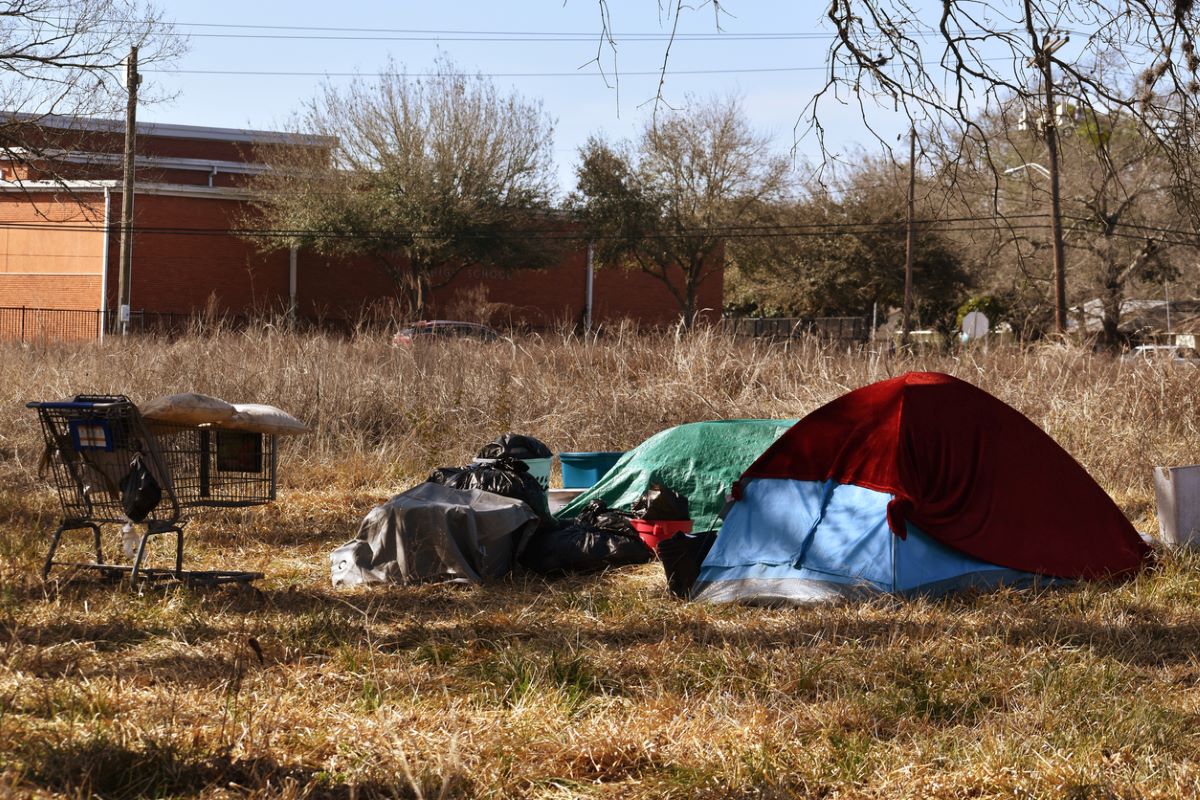The burgeoning wealth inequality gap continues to tear holes in the American landscape.
Spangled flags wave from the tents of homeless veterans.
Vegas residents are relegated to sewers like rodents.
New York City’s emergency shelters fill with families torn, not by faults but by circumstances.
Children’s last belongings are tossed callously into garbage receptacles as police sweep the country’s shame beneath a proverbial rug of citations.
Millennials fearing poverty never leave home. Many of them living doubled up don’t even realize that they, too, are homeless.
The media would have you believe that the nearly 600,000 American adults who lack a stable residence are undesirable, having forged this pathway through some unforgivable personal flaw. Even in an era driven by consumerism, are we really shallow enough to buy that explanation? Or is it just a copout that cowardice can use as a shield?
“We have to shut down a piece of our own humanity to be able to walk past another human being that is in such a difficult situation,” said Sam Tsemberis of Pathways Housing First Institute. While such misconceptions might allow us to cope temporarily, the long-term harm of casting vulnerable citizens into undesirable social roles cannot be understated.
We Are Wrong About the Causes of Homelessness and the Dangers We Pose to Members of this Marginalized Community
The leading causes of homelessness are listed below in order of prominence, with the first cause being the single-most leading cause:
- A lack of affordable housing
- Unemployment
- Poverty
- Insufficient wages
These causes reflect flaws in our social system, not in the individuals experiencing this abject phenomenon.
Often, we underestimate the pivotal roles that poverty and inequality play in creating the national homeless crisis. Mass media heavily promotes the idea that homelessness is the result of “poor choices”. There messages are so subtle you likely wouldn’t notice if you weren’t looking for them.
In addition to misunderstanding the root causes of homelessness, many housed individuals are also ignorant of the dangers posed to members of the unhoused community. For beginners, this marginalized group of individuals and families are often forced into survival mode.
Over the heads of the homeless community, there exist all of the following looming threats:
- Violence at the hands of an assailant
- Losing loved ones like children, family members, and pets
- Further social isolation
- Becoming incarcerated simply for the “crime” of being homeless
- Losing the last of one’s belongings in grueling encampment sweeps or under the duress of a robbery or assault
- Losing one’s life to the harsh physical, mental, and emotional condition of having no stable space to call home
Above all, one under-reported threat outweighs everything listed above. It is the threat of you and your slightly misguided opinion.
An Extensive Study Released in June of 2022 Reveals that Public Opinion Can and Often Does Devastate the Lives of People Living Unhoused
In June of 2022, Housing Matters, an Urban Institute Initiative, published a study that proved a direct link between the negative views of housed Americans and the negative outcomes of unhoused Americans.
The study, entitled “Complaint-Oriented Policing: Regulating Homelessness in Public Space,” which is the work of American Sociological Review’s Chris Herring, uses a wide range of investigative reporting to yield these stunning results. To quantify the role of what the author calls “complaint-oriented policing” (essentially translated to mean general public opinion), the study refers to:
- three years of ethnographic observations, including police ride-alongs, time served with shelter staff and community organizers, an interactive role in the mayor’s office, and a nine-month investigative stint of actual homelessness, which included moving from shelters to street corners for the sake of the investigation
- the analysis of almost 4 million 911 and 311 calls made over seven years
- 351 surveys
- 43 up-close and personal interviews and more
The study found that as public perception of the homeless community shifted toward criminalization, 911 calls related to homelessness skyrocketed, resulting in a 72% increase in police interactions with members of the homeless community.
More policing did not result in favorable outcomes or solutions. Indeed, 89% of the time, it resulted in what the author of the study referred to as “burden shuffling”. Essentially, this is shifting the blame for structural failure onto the shoulders of the very people failed by the system. Authorities instruct unhoused individuals to move aimlessly from one place to another without offering real, long-term solutions.
Forcing homeless people to move from one desolate corner to the next did absolutely nothing to reduce or eliminate homelessness. It did, however, cause unnecessary loss of possessions. It severed ties between homeless individuals and service workers. Ultimately, it exacerbated poverty. In 10% of cases, citations and license suspensions further restricted unhoused individuals’ freedoms. Of course, this makes it more difficult to obtain future housing. To quote the author of the study directly:
“This can lead to a cycle in which housing secure people are contributing to reduced security for people experiencing homelessness and a system that criminalizes poverty.”
Your Opinion Matters. Use It to Speak Up for Your Unhoused Neighbors
Time and again, studies show that what people think about the homeless community directly impacts homelessness. If you want to end this crisis, the next time you witness a homeless individual, pick up the phone. Instead of contacting local law enforcement and demanding more criminalization of poverty, contact your legislators and demand more compassion for your fellow human beings. Swinging the pendulum of policy back in favor of housing over handcuffs starts today. It starts with you.











